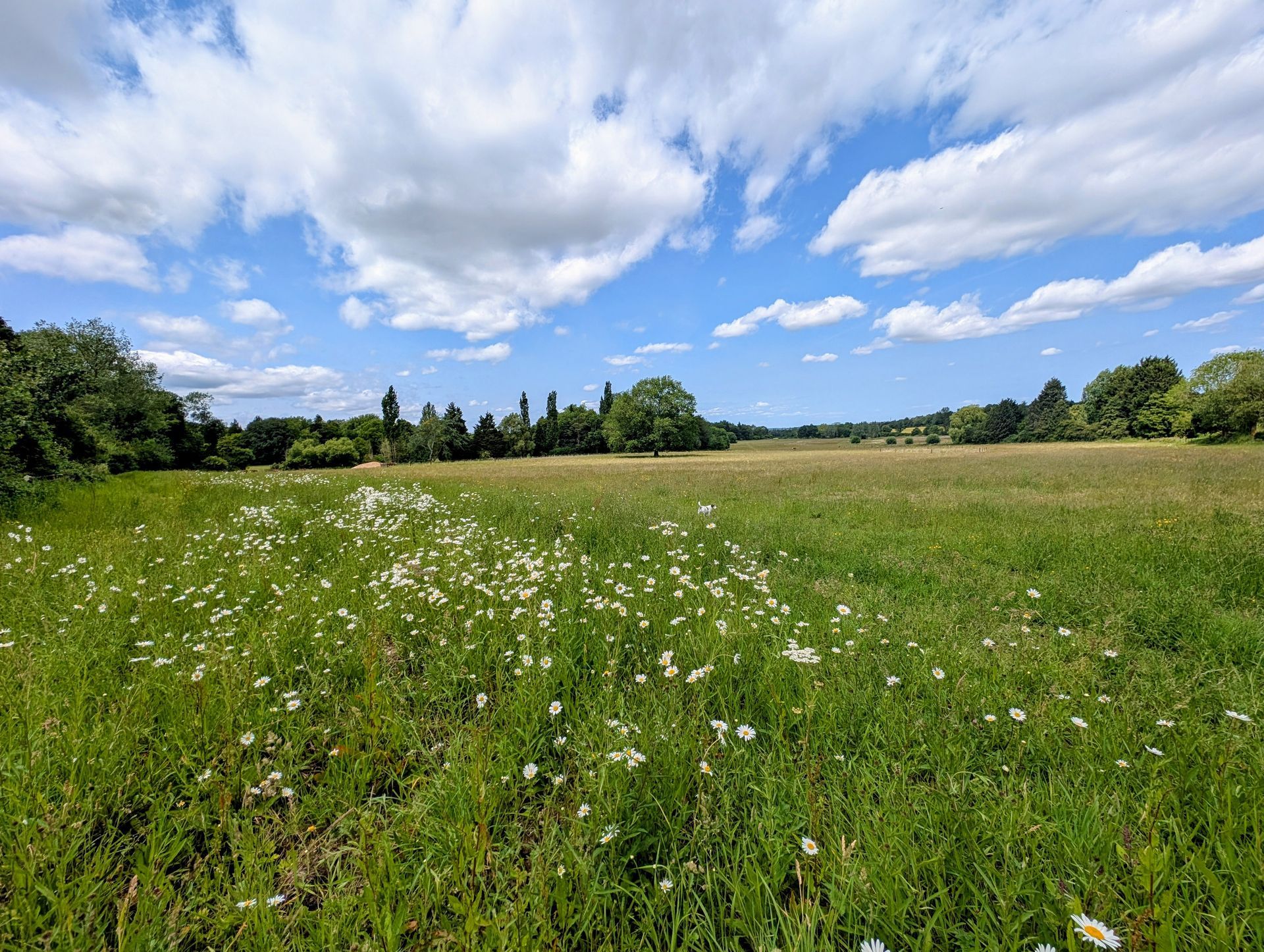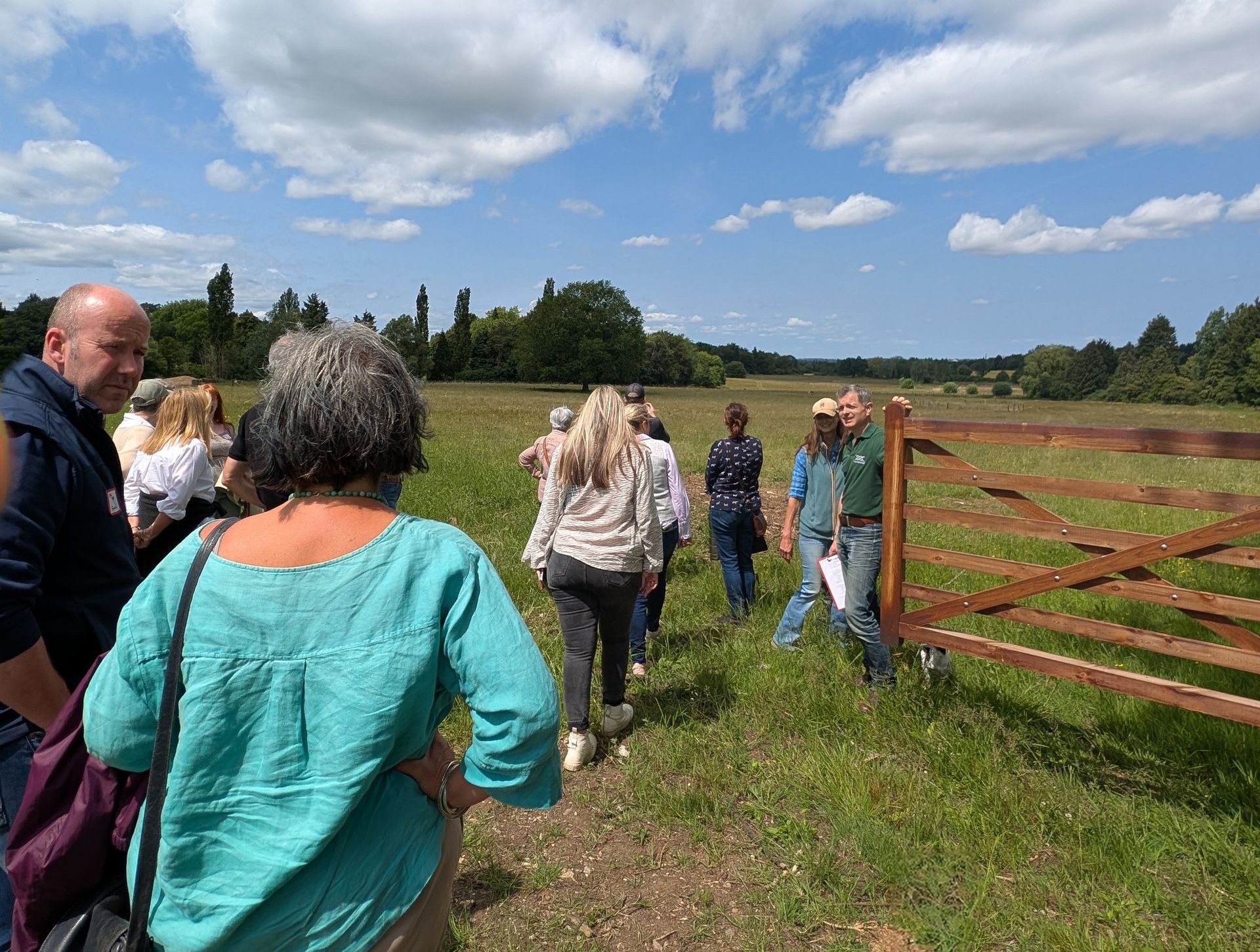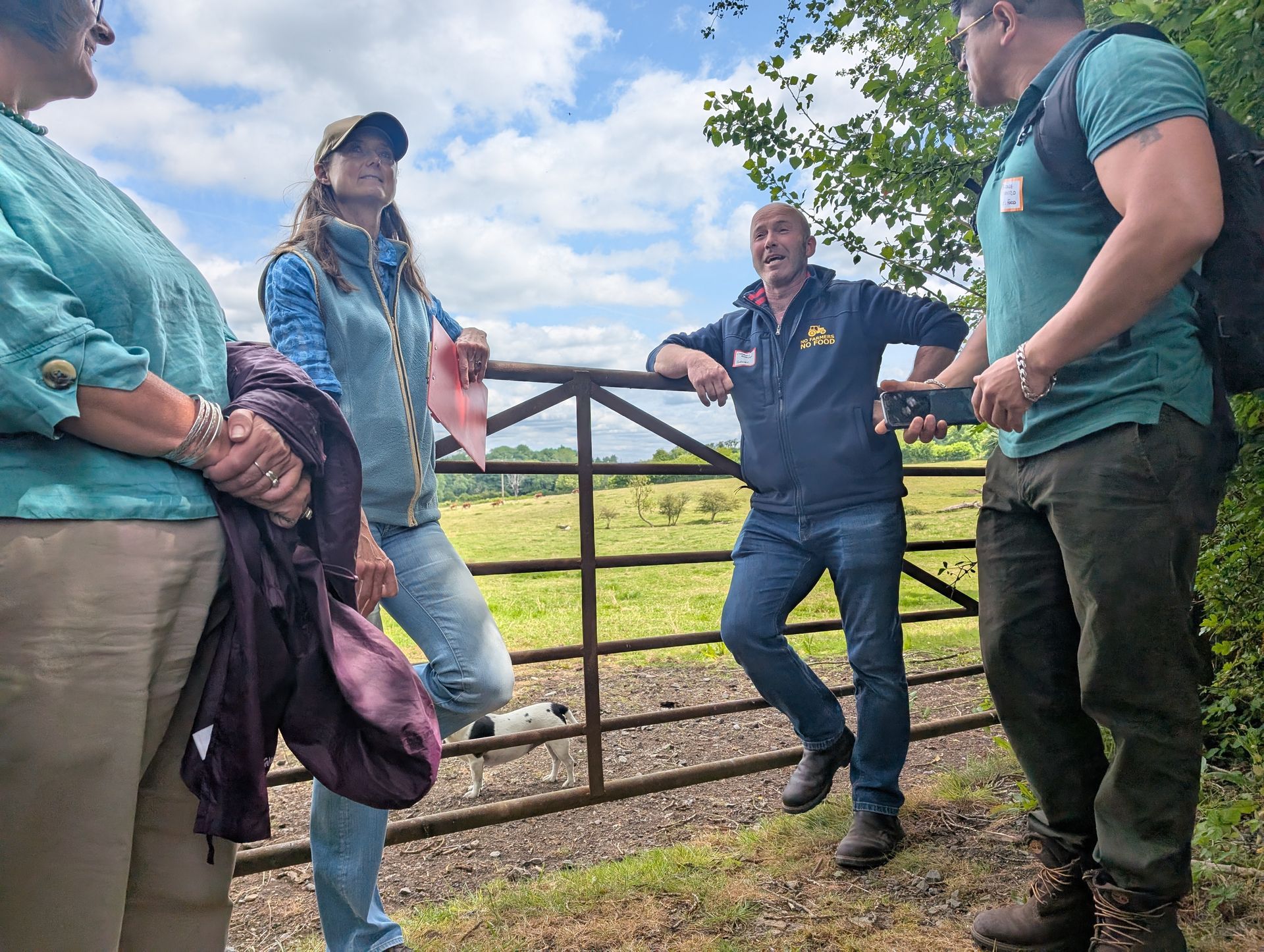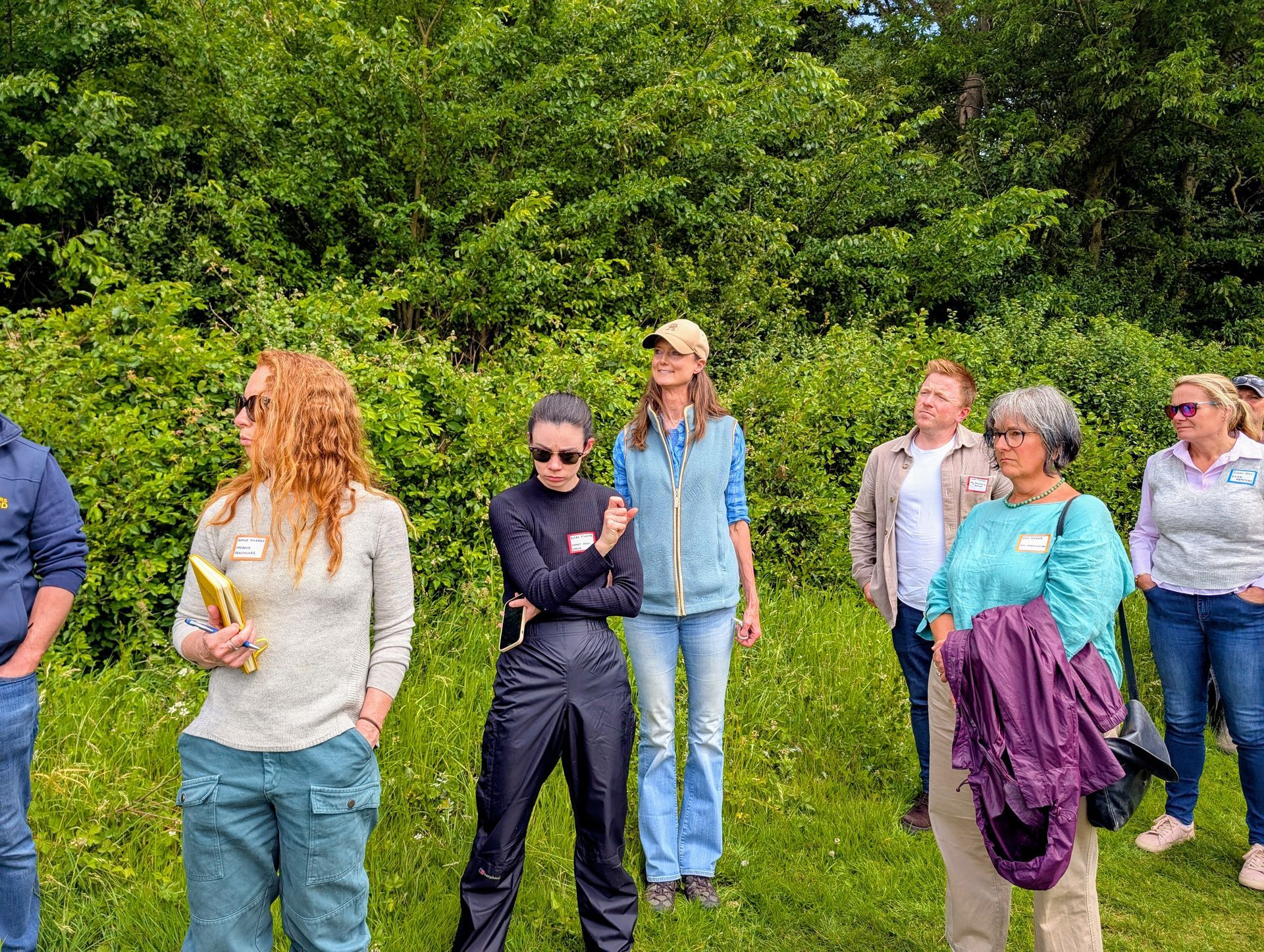
Courteenhall Estate, a model of regenerative farming nestled in the rolling countryside of South Northamptonshire, provided a stunning backdrop for Love British Food’s tenth on-farm training day.
The Estate’s rich heritage is married to a compelling story of innovation, stewardship and sustainability which perfectly aligned with the purpose of the visit – to connect changemakers across the public sector with the people and places behind the food they serve.
The training day brought together over 20 professionals working across schools, hospitals, universities, care homes, local authorities and the supply chain. All united by the shared goal of putting more British produce on the menu in public sector settings.
From the outset, the day cultivated open conversation, collaborative thinking, and a renewed sense of purpose for everyone present.
A thriving example of sustainable British farming
Hosted by Dr Johnny Wake, British Farming Awards’ Sustainable Farmer of the Year 2024, the event offered attendees a first-hand view of nature-friendly farming in action.
Johnny, returned to run the 350-year-old family estate after a career in medicine. Bring his expert insight on health and applying it to how food is produced in the healthiest way while benefiting the environment. Over more than a decade, he has transformed Courteenhall into a shining example of regenerative agriculture.
Under his guidance, the Estate has diversified from traditional arable to a mixed farm that has introduced combinable crops such as cereals, oilseeds and pulses as part of the rotation to build soil health. Livestock have been reintroduced including the heritage breed of Hereford cattle. This hardy herd are Reared to Pasture for Life standards by grazing the ancient parkland throughout the year. This benefits biodiversity, sequesters carbon, supports human health and animal welfare.
The landscape itself told a story – lush wildflower strips including rare orchids, cover crops, and vibrant hedgerows served to evidence of the farm’s commitment to biodiversity, carbon capture, and soil health. Visitors saw sustainability in action; as an operational ethos rooted in both legacy and future-thinking.
Connecting sectors, sharing solutions
Love British Food’s changemaker events are never passive learning days – they are spaces for people working in public sector catering to forge connections, share challenges, and co-create solutions. Over a lunch of seasonal British produce, delegates engaged in practical discussions around procurement barriers, seasonal menu planning, and leveraging local supply chains.
Examples shared on the day illustrated what success looks like in action:
- Nottingham County Council’s County Enterprise Foods radically restructured its supply chain to source 100% fresh local produce
- Milton Keynes University Hospital reported cost savings through working with a local butcher
- An NHS Trust restructured its tendering process to accommodate a regional dairy supplier
- NHS caterer reported move from per-patient budgets to fortnightly budgets to deliver savings
- Schools using regional wholesalers for fresh vegetables and meat
- Local dairy farm supplied ice cream to hospital, improving nutritional value
- North Shropshire hospital sourcing beef from a local farm and putting it on their menu once a month
These stories demonstrated how policy shifts, procurement language, and courageous leadership can unlock opportunities for British producers.
As one attendee put it, “Today has shown how much positive impact you can have through small but meaningful changes. Shouting about what you’re already doing, telling the story – it becomes part of your customer experience.”
The power of networks
With Courteenhall marking the tenth farm visit, Love British Food’s training programme has now created a nationwide network of over 200 changemakers. These are individuals return to their institutions empowered and equipped to push for incremental but impactful shifts in sourcing policy.
Founder Alexia Robinson described the importance of this network:
“Each of our changemakers leaves with a deeper understanding of how the food we eat is produced, and why that matters for sustainability, nutrition, and local economies. Their collective impact is immense – British food becomes not just a procurement choice, but a values-led statement.”
This growing network is already delivering on that promise, advocating for systemic change in the way public institutions think about food. Attendees discussed how procurement frameworks can be rewritten to prioritise sustainability, how stories from farms can help meet Ofsted and CQC objectives, and how even minor shifts in menus can support the broader goal of a healthy, sustainable food system.
From vision to action
The event closed with a strong sense of optimism and forward motion. As delegates prepared to return to their respective organisations, the mood was one of resolve. The visit had reaffirmed the link between food, land, health, and sustainability. Most importantly, it had sparked ideas for how to turn knowledge into action.
Love British Food’s farm training visits are not just about showcasing British farming, they are about cultivating a movement. They remind us that changing our food system is not about one big leap, but about many people making small, meaningful steps, together.
As one changemaker concluded: “Whether it’s choosing a local butcher, sourcing seasonal veg, or championing British produce in a school lunch, it all adds up. That’s the power of this programme. It gives us the knowledge and the network to make it happen.”
As out host farmer, Johnny spoke of the impact the day and how it changed his perception: “I now have a much better understanding of the multiple challenges in public sector catering. While sweeping reform won’t happen overnight, small, strategic changes will deliver long-term improvements to public health and our environment.”
Quotes from the day:
- "Change needs to be accessible and actionable. Today has shown how much positive impact you can have through small but meaningful changes."
- “We urgently need to dispel the myth that fresh, British produce is more expensive – when considered in a wider social and economic context.”
- “We need to make food a priority in the NHS. Too often the focus in hospital is on cure rather than prevention.”
- “The programme provides a vital opportunity to see the work that British farmers put into producing food”
- “We need to make food a priority in the NHS. Too often the focus in hospital is on cure rather than prevention.”
- “Shout about what you are already doing, tell the stories so it becomes part of your organisation and your customer experience”
- “I am hugely grateful to Johnny for hosting and sharing how regenerative farming contributes to British food production.”
- “Johnny was such an outstanding host, with a wealth of knowledge to share and a keen interest in the intricacies of public sector procurement.”
Caterers, Dieticians, Procurement Leads and Board Members are all invited to attend our farm visits.
Each visit runs from approx. 11am – 3pm and involves a farm tour followed by working lunch and discussion on opportunities and challenges.
Anyone interested in attending a future farm visit and joining our cohort of changemakers should contact: info@lovebritishfood.co.uk
Share:
You may also be interested in...

















